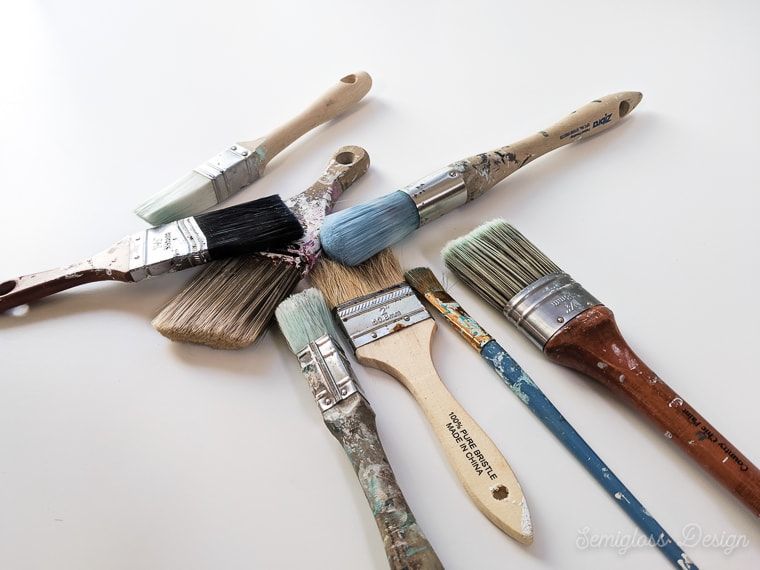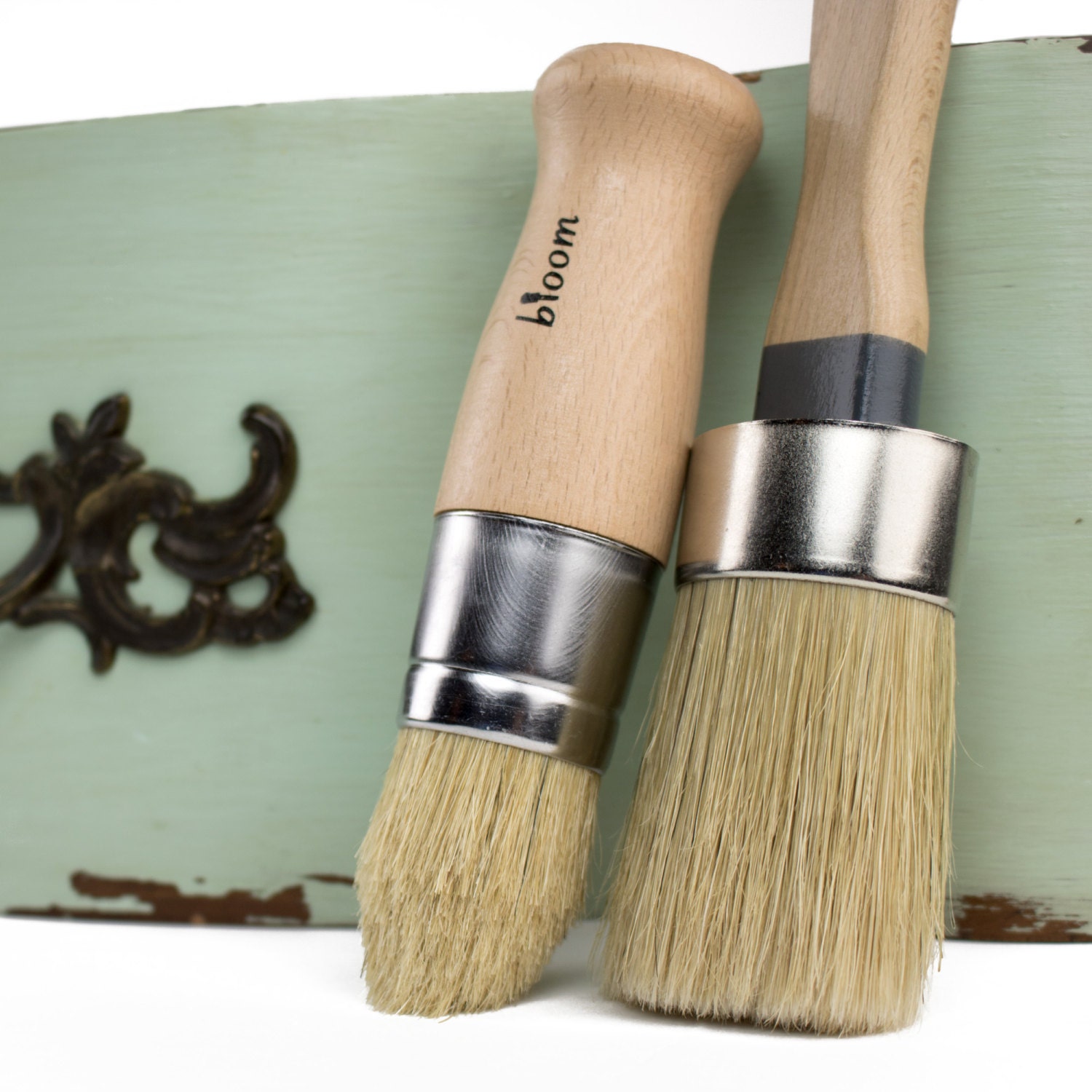- Chalk Paint Brushes Home Depot
- Chalk Paint Brushes For Furniture
- Chalk Paint Brushes Walmart
- Chalk Paint Brushes For Furniture
As you likely know, paint brushes come in what seems like an unlimited variety of shapes and sizes, bristle types and price. Knowing the difference between natural and synthetic bristle paint brushes will help you figure out what to choose for your next DIY project.
Natural
5 Chalk Paint Premium Brushes. The Finest Boar Bristles in Oval Head. Sale Price: 44.00 Original Price: 62.00. 2 Styles Chalk Paint Brushes. FREE SHIPPING IF YOU SPEND $50 OR MORE ON PAINT! USE CODE: SHIPFREE50 Set includes 3 (4oz) chalk paints and brush. See pic #2 for color options and put your color choices in the notes section for us! Whether you want to paint a new decorative piece or give new life to old furniture, our handcrafted. Comprised of three brushes for chalk paint and various other useful tools, this set is remarkably complete. The brushes themselves are expertly constructed, featuring tightly-packed bristles that soak up and release paint with remarkable efficiency. Brossum Large 2-in-1 Round Chalk and Wax Brush. It is a round head paintbrush. And not only an.
As the name suggests, natural bristle paint brushes are made from natural animal hair such as hog, sable and badger.
When to Use Natural Bristle Brushes
Natural bristle brushes are great when you are using:
- Oil-based paint
- Varnish
- Shellac
- Shellac-based primer
- Alkyd enamels
- Stain
- Polyurethane
- Chalk-based paint
- Milk paint
- Clay-based paint
The Good
These type of bristles actually split naturally which makes them designed to pick up, hold and distribute natural paints and can speed up painting. The soft flexibility of natural bristle brushes help to apply a thin, even layer of paint reducing streaks and distributes paint evenly. When using these brushes with natural paints (chalk/milk/clay-based) there is less chance of streaking than with synthetic brushes.
The Bad
If you are looking for precision painting, natural brushes can be difficult to use.

Natural bristle brushes also shed the first few times you use them. If you have bought a quality natural brush, the bristles should stop shedding after the second or third use.
Synthetic
Synthetic bristles are made from materials like nylon, polyester or a mix of both.
When to Use Synthetic Bristle Brushes
Synthetic bristle brushes are great when you are using:
- Water-based latex paints
- Water-based primers
- Gloss Paint
- Acrylic paint
- Water-based wood finishes
The Good
Nylon brushes are durable, excellent paint pickup, and smooth finish.
Polyester brushes maintain their shape and control which is great for detail work.
Nylon/Polyester blend brushes combine all the positive qualities and is the most popular choice.
The smooth texture and springiness of the bristles make for an even finish aand great for woodwork and furniture in water based satin,eggshell and gloss finishes.
Modern synthetic brushes are excellent and have the advantage of being cheaper than natural hair.

The Bad
Nylon brushes soften in hot weather or after a lot of use with latex paint. Brushes can lose the ability to create a smooth, precise finish.
Polyester brushes have a lower paint pick up which means you will need to reload your brush more often.
Paint with fast-drying ingredients (majority on the market right now) will stick to polyester making them harder to clean. If you look after these brushes, they’ll last for years.
What happens if you use the “wrong” bristled brush with the recommended paint?

If you try to apply latex paint with a natural-bristle brush, the bristles will absorb the water from the paint and become extremely limp, making it difficult to spread the paint smoothly.

If you try to apply chalk/clay-based paint etc. with a synthetic brush, you will likely have a lot of brushmarks and have a lot of extra work getting a smooth finish.
Not sure what size of brush to use either?
The size of the brush to use will really depend on the type of project you are tackling. Here is a short guide to help you get started. Don’t forget to read the packaging on each brush. Many manufacturers list the recommended use for their brushes.
4″ – 6″ This size would be great for painting large flat areas. I have one this size but have yet to use it!
2″ – 3″ The size I use the most! Great size for painting all types of smaller flat surfaces.
Chalk Paint Brushes Home Depot
1″ – 1.5″ Perfect for more detailed smaller projects. Great for trim work on doors & walls too.
0.5” I have a ton of these small brushes for all my “crafty” projects.
Chalk Paint Brushes For Furniture
Shapes
Chalk Paint Brushes Walmart

The shape of the brush can affect how easily you will be able to paint your project. A brush with a squared-off end works well for flat surfaces because it will hold plenty of paint and spread evenly. Angled brushes are for precise work on trim and corners because they allow for more control and a straighter line.
Chalk Paint Brushes For Furniture
Do your really get what you pay for with a paintbrush?
As a general rule, you do get what you pay for with paintbrushes. Although I have a lot of inexpensive brushes in my workshop, I have found that I keep going back to the more expensive brush. I am currently using a Cling-On brush, which I paid $30 CND, and LOVE it because of the smooth finish I achieve.
Quality brands to check out:
- Cling-On! – synthetic bristle brushes
- Zibra – synthetic bristle brushes
- Purdy – offers both synthetic and natural bristle brushes
- Wooster – offers both synthetic and natural brushes
- Staalmeester – synthetic / natural bristle blend
Don’t forget about Prep Work!
Even the perfect paint brush isn’t a guarantee for a smooth, flawless finish. If you haven’t prep your surface properly, you will be disappointed with the final product. Do you need a refresher on what steps to take for proper prep work? Check out the blog post I wrote 7 Steps To Prep Furniture .
